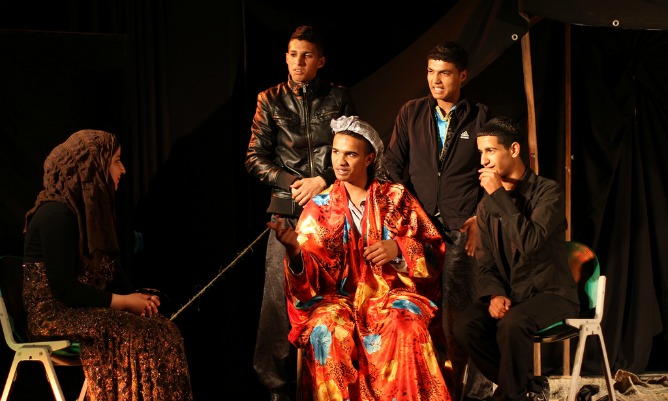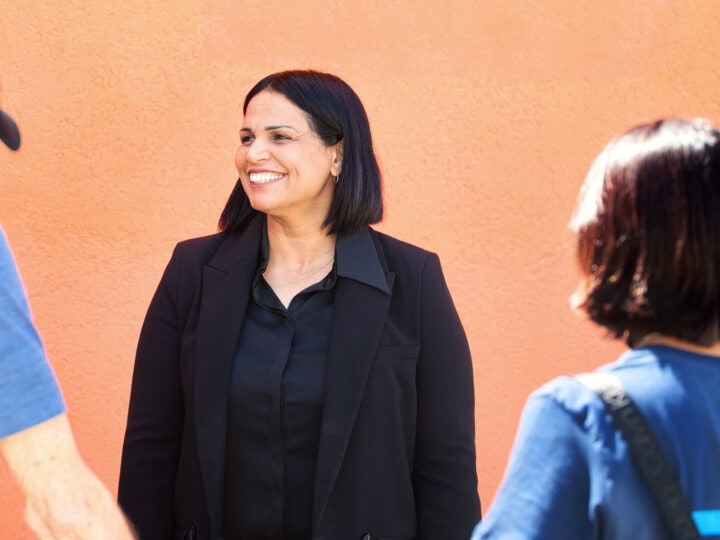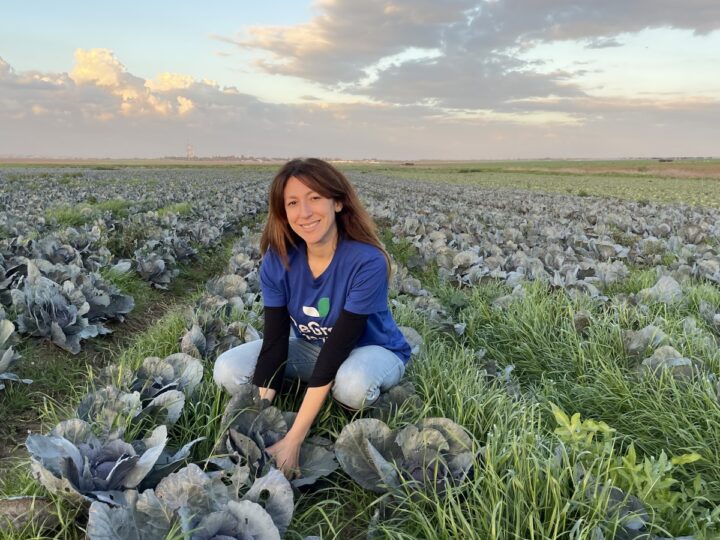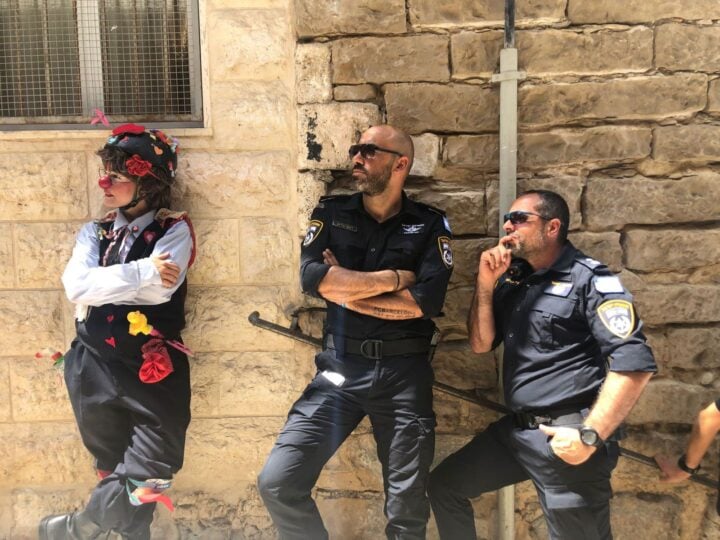Fifteen Bedouin teenagers from the northern Negev town of Hura have made Israeli theatrical history. Their March performance at the Bat Yam Youth Theatre Festival marked the first time a Bedouin troupe of any age had staged a Western-style play in Israel.
The Hura Community Youth Group’s play was its own adaptation of the 17th century French satire by Molière, Le Bourgeois gentilhomme (“The Bourgeois Gentleman”). These teens managed to transform Molière’s comic masterpiece into a hilarious portrayal of their own cultural reality in the jargon of modern Bedouin Arabic.
In this version, a Bedouin-style tent replaces the stately mansion, traditional Bedouin robes and head coverings replace period French costumes, and instead of the minuet, five boys perform a fiery debka line dance.
Spread the Word
• Email this article to friends or colleagues
• Share this article on Facebook or Twitter
• Write about and link to this article on your blog
• Local relevancy? Send this article to your local press
None of the 15- to 19-year-old Bedouin boys and girls in the production had ever performed on stage or had even seen live theater, which is not part of their culture. The Hura Community Youth Group was formed specifically for this project.
Overcoming cultural barriers
Founded 18 years ago in the coastal town of Bat Yam just south of Tel Aviv, the festival produces an annual marathon of plays by young thespians from all over the country. Although Arabic-speaking community groups have performed in the past, this was the first time that a troupe of Bedouin, a mostly desert-dwelling tribal ethnic group, participated.
The inspiration for producing a play by Molière in the Bedouin community came from Pauline Marchand, director of the French Institute of Beersheva and the Negev, the cultural arm of the French Embassy, which is underwriting the project.
“This particular play by Moliere immediately spoke to these young people,” explains Marchand. “They understand the pretensions of the rich, and that money can make you crazy.”
Marchand proposed the idea to veteran director Ya’acov Amsellem, who has long experience in community and youth theater. He jumped at the unique opportunity. It would prove to be a long process, not only to coax the normally reticent Bedouin teens to perform a farce on stage, but also to win over their parents. In traditional Bedouin culture, men and women do not mix in public.
Ibrahim Sayah, head of the Hura Community Center Youth Division, related that many of the girls who initially signed onto the project were forced by their parents to pull out. Eventually, however, the cast included more girls than boys.
[scrollGallery id=10 useCaptions=true]
“When we started this theater project, there were many challenges to overcome. To start with, we were attempting to expose young Bedouin to a culture that is not only Israeli, but also Western and French, and this was very difficult,” Sayah tells ISRAEL21c.
‘Theater isn’t part of our culture’
“In our community, theater isn’t part of our culture,” confirms 15-year-old Sondos Aisraia, who plays a key role. “My parents didn’t agree at first, but little by little they saw that this was something positive and educational, and accepted the idea. We know we can do this.”
Beyond the issue of girls and boys mixing, the teenagers come from a range of local tribes and families who don’t normally socialize.
“People think the Bedouin are primitive. But this youth theater shows something quite different,” notes Sayah. “One of our aims in this project was to show the kids that it is possible to accept ‘the other,’ whatever their ideas or origins,” he adds. “These kids have come together and bonded in a way that I hadn’t anticipated, and developed a strong social connection.”
The French Consulate plans to present the play in other cities in Israel where there is an Arabic-speaking population — Acre, Haifa and Nazareth — and eventually, in France.
















